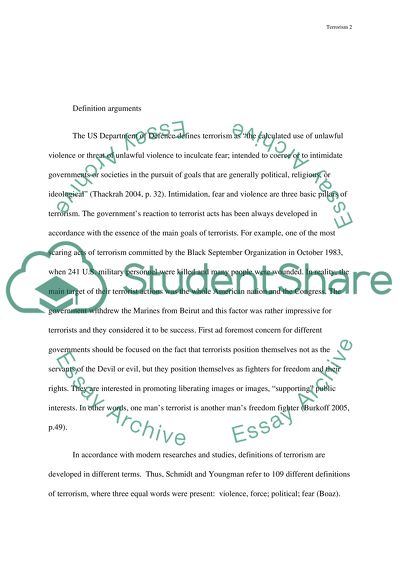Cite this document
(“Defining terrorism Essay Example | Topics and Well Written Essays - 1750 words”, n.d.)
Retrieved from https://studentshare.org/history/1399927-defining-terrorism
Retrieved from https://studentshare.org/history/1399927-defining-terrorism
(Defining Terrorism Essay Example | Topics and Well Written Essays - 1750 Words)
https://studentshare.org/history/1399927-defining-terrorism.
https://studentshare.org/history/1399927-defining-terrorism.
“Defining Terrorism Essay Example | Topics and Well Written Essays - 1750 Words”, n.d. https://studentshare.org/history/1399927-defining-terrorism.


